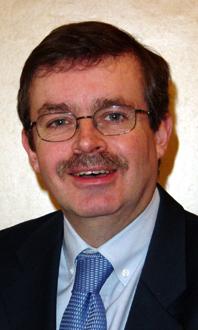Smith-Spark, J.; Moore, V. and Valentine, Tim. 2013. Determinants of famous name processing speed: Age of acquisition versus semantic connectedness. Acta Psychologica, 142, pp. 230-237.
Hobson, Z.; Wilcock, R. and Valentine, Tim. 2013. Multiple suspect showings: A survey of police identification officers. Policing, 7, pp. 79-87.
Valentine, Tim; Davis, Josh P.; Memon, Amina and Roberts, Andrew. 2012. Live Showups and Their Influence on a Subsequent Video Line-up. Applied Cognitive Psychology, 26(1), pp. 1-23. ISSN 0888-4080
Smith-Spark, J.; Moore, V. and Valentine, Tim. 2012. Long-term age of acquisition effects in famous name processing. Acta Psychologica, 139, pp. 202-211.
Valentine, Tim and Maras, K. 2011. The effect of cross-examination on the accuracy of adult eyewitness testimony. Applied Cognitive Psychology, 25(4), pp. 554-561. ISSN 0888-4080
Davis, Josh P.; Valentine, Tim and Davis, Robert. 2010. Computer assisted photo-anthropometric analyses of full-face and profile facial images. Forensic Science International, 200(1-3), pp. 165-176. ISSN 0379-0738
Valentine, Tim; Davis, Josh P.; Thorner, Kate; Solomon, Chris and Gibson, Stuart. 2010. Evolving and combining facial composites: Between-witness and within-witness morphs compared. Journal of Experimental Psychology: Applied, 16(1), pp. 72-86. ISSN 1076-898X
Davis, Josh P. and Valentine, Tim. 2009. CCTV on trial: Matching video images with the defendant in the dock. Applied Cognitive Psychology, 23(4), pp. 482-505. ISSN 0888-4080
Valentine, Tim and Mesout, Jan. 2009. Eyewitness identification under stress in the London Dungeon. Applied Cognitive Psychology, 23(2), pp. 151-161. ISSN 0888-4080
Thompson, Peter; Anstis, S. M.; Rhodes, G. and Valentine, Tim. 2009. Thompson's 1980 paper. Perception, 38(6), pp. 921-932. ISSN 0301-0066
Angeli, Adriana; Davidoff, Jules B. and Valentine, Tim. 2008. Face familiarity, distinctiveness, and categorical perception. The Quarterly Journal of Experimental Psychology, 61(5), pp. 690-707. ISSN 1747-0218
Powell, Jane H.; Letson, Susan; Davidoff, Jules B.; Valentine, Tim and Greenwood, Richard. 2008. Enhancement of face recognition learning in patients with brain injury using three cognitive training procedures. Neuropsychological Rehabilitation, 18(2), pp. 182-203. ISSN 0960-2011
Darling, Stephen; Valentine, Tim and Memon, Amina. 2008. Selection of lineup foils in operational contexts. Applied Cognitive Psychology, 22(2), pp. 159-169. ISSN 08884080
Valentine, Tim; Darling, Stephen and Memon, Amina. 2007. Do strict rules and moving images increase the reliability of sequential identification procedures? Applied Cognitive Psychology, 21(7), pp. 933-949. ISSN 08884080
Valentine, Tim and Stone, A.. 2007. The categorical structure of knowledge for famous people (and a novel application of Centre-Surround theory). Cognition, 104(3), pp. 535-564. ISSN 00100277
Valentine, Tim; Powell, Jane H.; Davidoff, Jules B.; Letson, Susan and Greenwood, Richard. 2006. Prevalence and correlates of face recognition impairments after acquired brain injury. Neuropsychological Rehabilitation, 16(3), pp. 272-297. ISSN 0960-2011
Valentine, Tim and Darling, S.. 2005. The categorical structure of semantic memory for famous people: A new approach using release from proactive interference. Cognition, 96(1), pp. 35-65. ISSN 00100277
Stone, Anna and Valentine, Tim. 2004. Better the devil you know? Non-conscious processing of identity and affect of famous faces. Psychonomic Bulletin & Review, 11(3), pp. 469-474. ISSN 1069-9384
Valentine, Tim; Darling, Stephen and Donnelly, Mary. 2004. Why are average faces attractive? The effect of view and averageness on the attractiveness of female faces. Psychonomic Bulletin & Review, 11(3), pp. 482-487. ISSN 1069-9384
Valentine, Tim; Darling, S. and Pickering, Alan. 2003. Characteristics of eyewitness identification that predict the outcome of real lineups. Applied Cognitive Psychology, 17(8), pp. 969-993. ISSN 08884080
Valentine, Tim and Hollis, J.. 2001. Proper name processing: Are proper names pure referencing expressions? Journal of Experimental Psychology Learning Memory and Cognition, 27(1), pp. 99-116. ISSN 02787393
Valentine, Tim and Heaton, Pam F.. 1999. An evaluation of the fairness of police line-ups and video identifications. Applied Cognitive Psychology, 13(S1), S59-S72. ISSN 08884080
